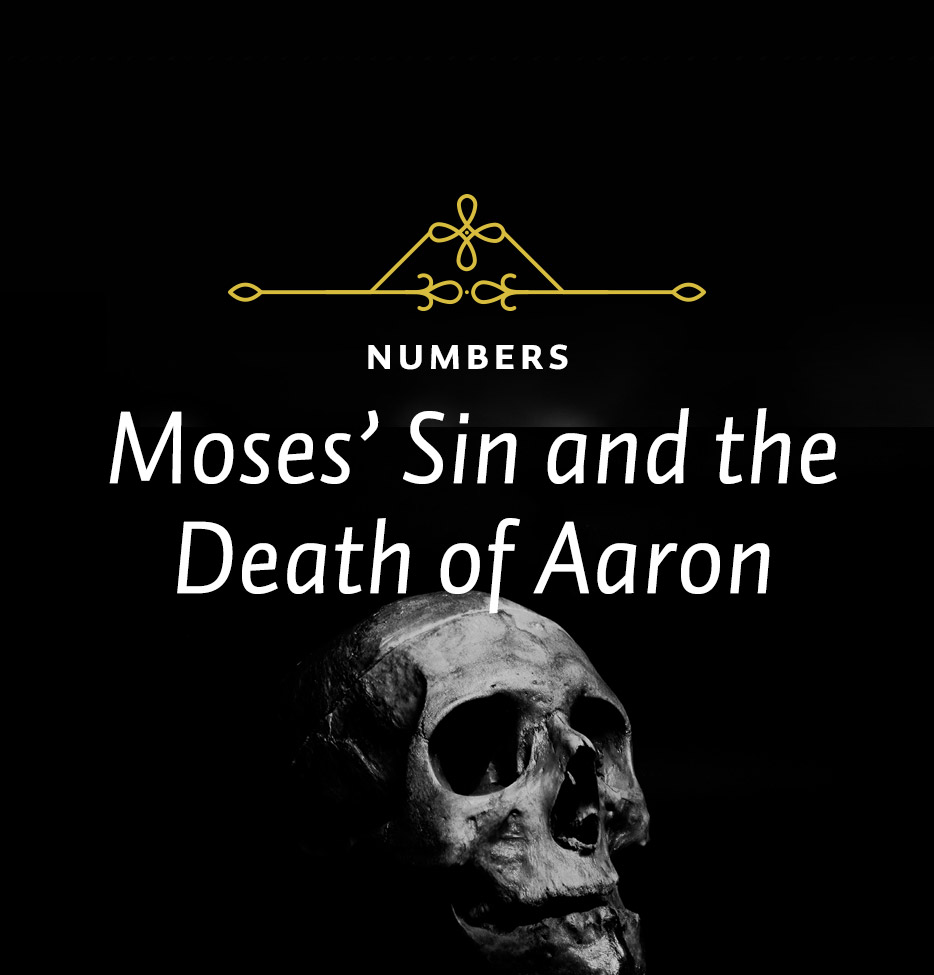From yesterday’s study, we saw that the first thing Moses failed to do was to follow God’s instructions exactly.
The second thing Moses did is the most obvious failure. He didn’t fully glorify God. Instead of attributing the miracle to God entirely, he took some of the credit for himself. He said, “Must we do it?”—implying that he and Aaron must bring water out of the rock.
Now let me say that if we’re going to avoid repeating Moses’ failure in our own lives, we’re going to have to work hard in giving glory to God. I think that’s one of the hardest things for us to do, because when God does something, He does it through secondary causes. For example, if God wants to reach someone with the Gospel, God sends a Christian to him or her to explain the Gospel. The secondary cause—the witness of the Christian—is as important as the fact that God is sending that person and doing the work of conversion. God worked through Moses to do these miracles. Likewise, God works through us to accomplish things for Him. But it’s very easy for us to wrongly think that since we are the ones doing it, or at least we’re the ones that are doing it together with God, we therefore should receive some of the credit. We have to realize that even though we may be called to do something, it is God who does the work through us, and He brings the blessing.
We have to get in the habit of giving glory to Him always. One of my friends, the head of an important theological seminary, does this very well. I have said to him on many occasions, “Boy, you’re really doing a great job there,” but he always says that it’s God who’s doing it.
The world doesn’t say that. The world can’t ever say, “It’s God that’s doing it,” because the world always takes the credit. The Westminster Shorter Catechism asks, “What is the chief end of man?” And the answer it gives is, “Man’s chief end is to glorify God, and to enjoy him forever.” What the world does is glorify itself and tries to enjoy itself forever. We have to follow a different pattern.
The third thing is that Moses did not fully trust God. We know this because God accuses him of this sin in verse 12: “Because you did not trust in me enough to honor me as holy in the sight of the Israelites, you will not bring this community into the land I give them.” We do not know exactly how Moses didn’t trust God, but we are not responsible for Moses; we are responsible for ourselves, and we should be very concerned about the many ways in which we fail to trust God. F. B. Meyer writes, “Let us watch and pray, lest there be in any of us an evil heart of unbelief; lest we depart in our most secret thought from simple faith in the living God; lest beneath a fair exterior we yield our jewel of faith to the solicitation of some unholy passion.”1
As the people moved north out of the Sinai into Canaan, the best way to go was through Edom. Edom was a mountainous area about thirty miles wide and extended about one hundred miles down into the desert. There was a highway through Edom, which was the main passageway from Egypt to Syria, and the Edomites collected tribute from any who passed by that way. The Israelites asked the Edomites for permission to use this highway, and said that they would pay for the water they and their flocks would drink. The Edomites were very surly in their response, refusing to let them pass by on the highway, and even coming out against them in force with an army.
Moses decided not to contest the Edomites, but to go around. Undoubtedly he was led by God. The explanation comes later on in Deuteronomy 23:7: “Do not abhor an Edomite, for he is your brother.” The Edomites are traced back to Esau, who is the brother of Jacob and so a descendant of Abraham. God said to the people that they were right to make the request, and the Edomites ought to have let them go through. But they were not to fight them. As a result, the Israelites had to make a very lengthy detour and go all the way around Edom, finally come up against the Jordan by the promised land, from the east and out of the desert.
1F. B. Meyer, Moses: The Servant of God (New York: Revell, n.d.), 177.






